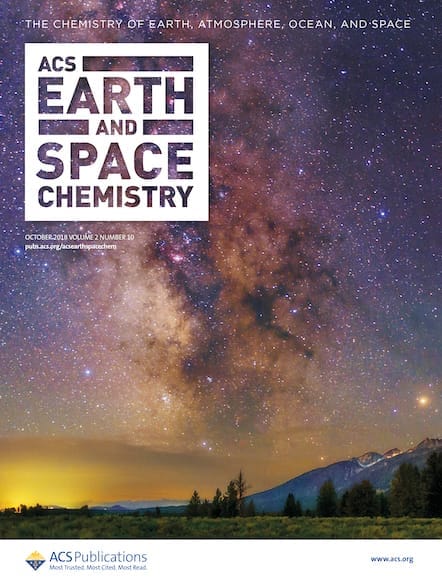The ACS Publications journal ACS Earth and Space Chemistry is launching a Special Issue devoted to “Marine Particle Chemistry: Influence on Biogeochemical Cycles and Particle Export.” Professors Hilary G. Close, Phoebe J. Lam, Brian N. Popp, and Editor-in-Chief Joel Blum will edit the Special Issue. The journal is now seeking papers for the Special Issue within the scope […]

The ACS Publications journal ACS Earth and Space Chemistry is launching a Special Issue devoted to “Marine Particle Chemistry: Influence on Biogeochemical Cycles and Particle Export.” Professors Hilary G. Close, Phoebe J. Lam, Brian N. Popp, and Editor-in-Chief Joel Blum will edit the Special Issue. The journal is now seeking papers for the Special Issue within the scope described below.
About ACS Earth and Space Chemistry
The journal seeks to publish the latest, innovative developments in research relevant to the Earth and Space, with a focus on the application of analytical, experimental and theoretical methodologies to areas such as, but not limited to, high- and low-temperature geoscience, biogeoscience, atmospheric and marine chemistry, astrochemistry, and analytical geoscience. The processing times from submit-to-acceptance is ~10 weeks, significantly faster than other journals publishing in the field. Submissions to this Special Issue must comply with the ACS Earth and Space Chemistry Guidelines for Authors and will be peer-reviewed in the usual manner. Open Access options are readily available to all authors.
Scope of this Special Issue
The magnitude of particulate carbon export from the sunlit upper ocean, the transfer of that carbon to the deep ocean interior, and the small fraction of organic carbon sequestered in the deep ocean are inextricably linked to marine particle chemistry. Researchers’ ability to quantify the export and fate of net primary production and predict future fates using ocean carbon system models is, however, limited. Improvements in the generation of ocean cycle models depend in part on a greater understanding of the mechanisms responsible for particle biogeochemical cycling.
To address researchers’ lack of knowledge, major international programs (GEOTRACES, EXPORTS) have been initiated with focused objectives that require understanding particle chemistry. The ability to quantify carbon export flux from surface waters and vertical attenuation of particle flux often relies on the use of various radionuclide tracers that adsorb to particles, but scavenging of these tracers can depend upon particle composition. Rates of particle aggregation and disaggregation, which affect particle flux and attenuation, can be assessed with geochemical measurements. Particle flux and attenuation can also depend upon how microbial and zooplankton communities affect rates of particle aggregation and disaggregation.
From the field scale down to the nanoscale, this Special Issue seeks to promote conceptual advances in understanding mechanisms controlling the export of particles from the euphotic zone and the fate of those particles as they sink, as well as how those processes are measured.
Example topics of interest include, but are not limited to:
- Mechanisms of particle aggregation and disaggregation;
- How particle composition affects export and remineralization and how those mechanisms are quantified;
- Chemical controls on the sorption of trace elements and isotopes to particles;
- Abiotic and biotic mechanisms controlling net vertical transport of particles to the deep ocean.
Submission of both original research and review-type papers are encouraged. Interested researchers should plan to commit to a submission timeline on or before March 9, 2020, so that the journal can ensure timely publication of this Special Issue. Manuscripts will be reviewed upon submission at any time before the submission deadline, and they will be published online immediately after acceptance. The Guest Editors welcome any pre-inquiries on manuscript concepts should questions arise about relevance against scope.
